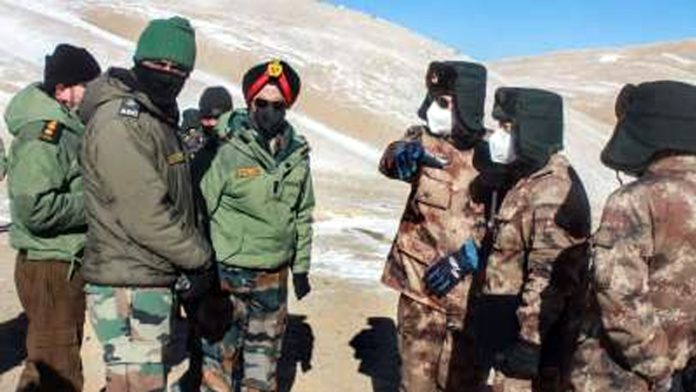NEW DELHI, Oct 25: After about a four-and-a-half-year military standoff in eastern Ladakh, the Indian and Chinese troops have started the disengagement process from Depsang and Demchok.
According to army sources, this process is likely to be completed by the end of this month.
The process of disengagement began after the agreement between India and China on the arrangement of patrolling of troops in the areas along the Line of Actual Control.
Sources also added that as a part of this process, both armies have also removed some temporary tents and structures.
It may be mentioned that Foreign Secretary Vikram Misri earlier this week had said that an agreement has been reached on the patrolling arrangement between the two countries, paving the way for the withdrawal of troops of both countries and restoration of the situation of April 2020.
In this sequence, a bilateral meeting was held between Prime Minister Narendra Modi and Chinese President Xi Jinping on the sidelines of the BRICS summit in Kazan, Russia.
Both leaders welcomed the consensus reached to resolve the standoff and restore normalcy along the Line of Actual Control.
With India and China arriving at an agreement to end the border standoff, sources in the Defence Ministry said the disengagement process along the Line of Actual Control (LAC) in Eastern Ladakh will be completed by October 29 and patrolling will begin by the end of this month.
On Thursday, Defence Minister Rajnath Singh said that India and China have been involved in talks both at diplomatic and military levels to resolve their differences in certain areas along the LAC. Pursuant to the talks, broad consensus has been achieved to restore ground situation based on the principles of equal and mutual security.
“The consensus achieved includes patrolling and grazing in traditional areas. This is the power of engaging in continuous dialogue because sooner or later, solutions will emerge,” he said.
In May 2020, an attempt was made by China to unilaterally change the status quo on the border. The Indian Army strongly opposed this attempt and foiled it, leading to a military standoff in the area. (UNI)


